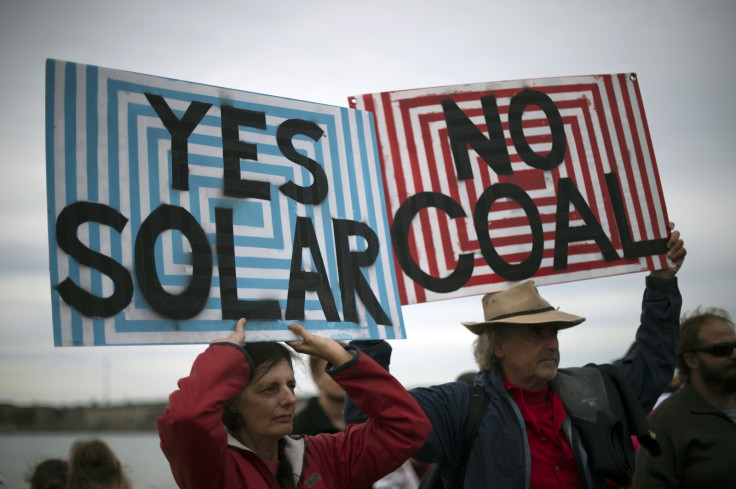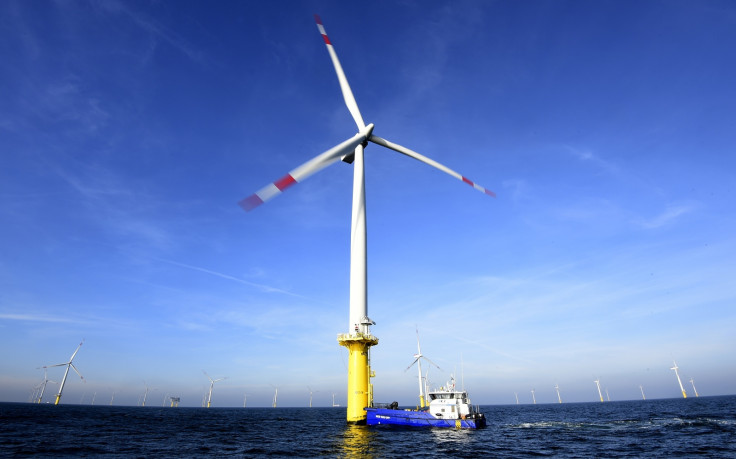Cameron is going backwards on sustainable energy - and it's us who will pay the price

Energy policy requires joined-up long-term thinking based on evidence and consistent choices. The infrastructure needed to achieve the secure supply of affordable and sustainable energy must give confidence to investors, anticipate technology trends and seek synergies between priorities that apparently pull in different directions.
During recent years we've entered a period wherein UK energy policy has ceased to do this and instead has become driven by political short-termism, is increasingly incoherent and has fallen victim to ideology and the internal politics of the Conservative Party. The result will be outcomes opposite to those signalled in ministerial soundbites that speak of 'keeping the lights on' and lowering bills for 'hard working families'.
Since the early 1990s and driven by rising concerns about climate change, energy policy was increasingly geared toward efficiency and growing the proportion of renewable power in the national mix.
During the years of the Coalition Government there were repeated efforts by Conservative politicians to push back on these trends. While the line was just about held by Liberal Democrat Ministers (even though they had to compromise and reverse their policy to support new nuclear power stations), the Conservative majority returned at the 2015 General Election, and this marked the launch of a full-scale assault against most renewables and measures to promote greater energy efficiency.
In just a few months several decades of progress toward a sustainable low-carbon energy system was thrown into reverse. Support for on-shore wind was axed, so was backing for Britain's fast-growing solar power sector. Incentives for generators to displace coal with biomass were ended while policies to deliver zero carbon homes and low carbon commercial buildings were scrapped. Long-standing plans for carbon capture and storage demonstration projects were axed too.
The Conservative majority returned at the 2015 General Election, and this marked the launch of a full-scale assault against most renewables and measures to promote greater energy efficiency.
The new power policy that staggered from the wreckage of the old one was based on a mix of new nuclear power stations, an increased reliance on gas (to be increasingly obtained by the controversial process of fracking) and the expansion of offshore wind power generating capacity. To say that this new policy was conceived on thin ice is a gross understatement. Take the killing of on-shore wind.

Since the first wind turbines were erected in the UK during the early 1990s there has been an intense battle waged between environmentalists concerned about climate change and rural campaigners intent of keeping their view free of what they see as industrial intrusions into otherwise unspoiled landscapes. The latter camp were mainly the constituents of rural Conservative MPs, whom for the most part they voted for. Finding favour among this group of MPs and voters was why David Cameron promised in the 2015 Conservative Manifesto to do away with support for new on-shore wind turbines, which post-election he duly did.
Part of the logic was that instead of this clean power source we'd increasingly rely on shale gas. The fact that we have no shale gas in production, or any prospect of doing so any time soon, seemed absent from the plan. And an important question is not only when, but whether, this will change. Over time public backing for fracking has declined (while backing for renewables has gone up), and in our crowded little islands the only reason there hasn't yet been a major popular backlash against shale gas is because it hasn't yet happened.
The only reason there hasn't yet been a major popular backlash against shale gas is because it hasn't yet happened
If fracking ever does get going in Britain, ministers can expect that one effect will be to unite the previously divided greens and rural Tories. Greens will on the one hand wish to prevent shale gas production because of its incompatibility with plans for a zero carbon economy while rural Tories will campaign against the real industrialization of the landscape. Clumsy attempts to change the planning system and bribe local authorities will make things worse and cause continued backing for shale to come at a heavy political cost.
Then there is the great hope ministers have pinned on new nuclear stations. Despite bending over backwards to create the conditions for the French Government owned EDF to invest in new stations in the UK, there are serious wobbles going on across the English Channel, where EDF executives, French ministers and labour unions are expressing grave doubts as to whether building new rectors at Hinkely Point in Somerset is a good idea. Doubters have quite rightly seen major risks ahead, not least based on the on-going difficulties EDF is facing in delivering similar reactors in Finland and France.
Those risks expose EDF to grave commercial peril and that is why the British Government has agreed an unprecedented deal that guarantees to pay the nuclear station more than twice the current retail price of electricity, guaranteed for 35 years, and linked to inflation. This will load many billions onto future household and business energy bills.
I was one of four environmentalists who wrote a joint letter to David Cameron back in 2012 warning him of the risk of policy failure in relation to nuclear power, not least in the risks that would come with effectively handing over our policy to the French Government. Exactly what we suggested could happen is happening. So much for political bluster about nuclear power being essential for energy security, never mind protecting hard working families from high bills.

The one bit of the current plan that still looks good is offshore wind. This is a fine and vital technology in which the UK has emerged as a world leader, but when it comes to wind power and bills, it would be better to have a more balanced portfolio that includes on-shore generation too (and more solar) so as to cut the already fast falling costs of these truly sustainable and renewable power sources.
People working in renewable energy are excited about cutting edge 21<sup>st century technologies being deployed in the development of electricity storage and smart grids that help to balance supply and demand in ever more efficient and cheaper ways.
In the wake of the Paris Agreement on Climate Change (that domestic legislation already requires us to meet in the UK) the world is moving toward the kinds of innovation that will deliver a truly sustainable low carbon future. It will be rich in jobs, an unprecedented business opportunity, drive innovation, attract investment and deliver health and wider social benefits. The UK has unfortunately, however, taken itself onto an alternative track, one that it is increasingly clear leads to a policy dead end.
This 21<sup>st century reality is visible to some, but the ideological frame adopted by the current British government that takes against renewables and efficiency and looks backwards to the 20<sup>th century. The image they see in the rear view mirror is to a time when nuclear electricity was predicted to be 'too cheap to meter' and fossil energy not only a boundless source of power but also tax revenues for Governments. Those days are gone, however. Superseded by clean modern technologies and increasingly shaped by the realities of climate change, British energy policy will soon become as stranded as the unburnable coal that lies beneath our country's green fields.
Tony Juniper is a sustainability and environment adviser. His latest book, What is really happening to our planet? The facts simply explained, will be published in June 2016.
© Copyright IBTimes 2025. All rights reserved.






















